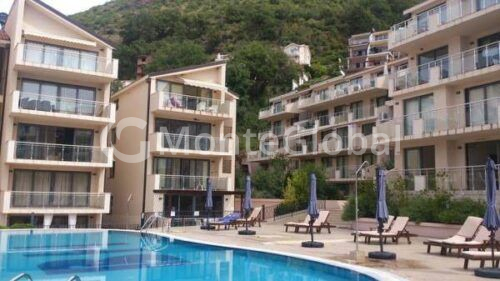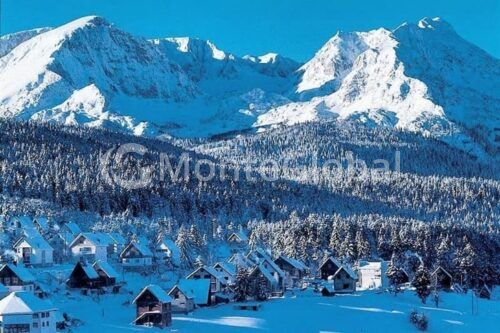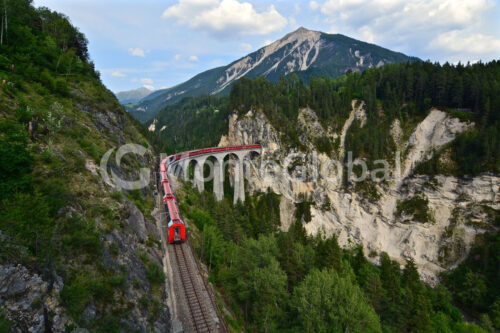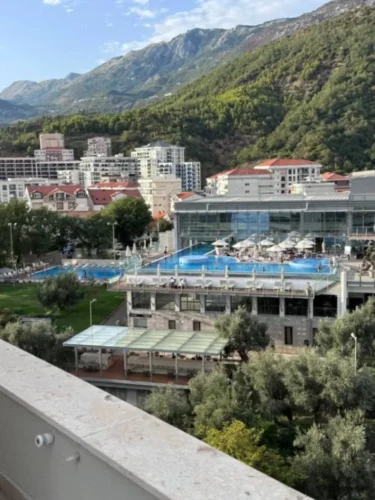Montenegro and sanctions
Published

Montenegro and sanctions
Since the introduction of sanctions against Russia, Montenegro has frozen an apartment of 33 square meters. m and part of the basement.
Last year, the Montenegrin authorities misled European officials that they had frozen the assets of 34 Russian citizens who were on the EU sanctions list. Former Interior Minister Filip Adzic said last June that authorities, following European policy, had frozen the properties of sanctioned Russians. “For 44 real estate objects, the cadastral department made decisions limiting the disposal of real estate in Montenegro. This concerns 34 Russian citizens on whom sanctions were imposed,” said Adzic. Four months later, this information also appeared in the annual report of the European Commission on Montenegro. However, the matter is that only one Russian citizen had frozen assets, which was confirmed by Radio Free Europe's (RSE) Cadastre and State Property Directorate. The EU delegation in Podgorica had no comment on the controversial announcement.
Ines Mrdovic of Social Rights Action for RFE believes that responsibility for this omission lies with Montenegrin institutions.
“It is inappropriate to provide the EU with information that does not correspond to the situation on the ground,” says Mrdovic.
Russia's invasion of Ukraine began in February 2022, and the Montenegrin government joined EU sanctions in April after several delays that included freezing the assets of Russian citizens and companies on the list.
First they banned alienation, then they did an identity check
The cadastre administration clarified for RFE what happened after the list of Russians subject to EU sanctions appeared.
According to RFE, the lists contained first and last names, while only some of them indicated the date of birth.
As they explain, the only search criteria were first and last names.
“Decisions were made for a number of persons whose names and surnames coincided to prohibit the disposal of property due to the danger of alienation and the burden of real estate,” the administration said in a statement.
Only after this was an identity check carried out, which showed that 33 of the 34 people were not on the sanctions list, but only had the same first and last name.
After the errors were identified, they carried out a “fix solution” from management. As they explained, with an urgent freeze before identity verification, they decided that the “sanctioned” real estate would not be sold or encumbered with loans.
Information about the asset freeze was reported by numerous media outlets from the region at the time.
Bashirov is the only one whose assets are frozen
The administration did not disclose the name of the person whose assets were frozen, but documents indicate that he is Marat Bashirov, the former prime minister of the self-proclaimed Lugansk People's Republic.
The decision to impose sanctions states that he is responsible for the separatist “government” actions of the so-called “government of the Lugansk People’s Republic.”
He has a smaller apartment with an area of 33 square meters in the Budva village of Becici. In addition, there is a non-residential space of 128 square meters in joint ownership with several other people.
A large number of citizens of Russia and Ukraine live in Montenegro
Russian citizens own real estate in 13 Montenegrin cities, of which 98% are on the coast. They own about 19,000 real estate properties.
Among those who own real estate are oligarch Oleg Deripaska and Moscow Prosecutor General Denis Popov
Ines Mrdovic believes that the entire process was not transparent enough either for citizens or for European partners.
“We end up in situations where one says one thing and another says another. And then you wonder what is actually true. In any case, it is very bad not to provide complete and accurate information to European partners,” Mrdovic said.
The European Parliament adopted a resolution on Montenegro in October this year.
It welcomes Montenegro's compliance with sanctions against Russia.
However, concerns have been raised about the large number of Russian citizens, including oligarchs, settling in Montenegro.
“We call on the Montenegrin authorities to ensure that the country does not become a hub for companies and individuals who want to circumvent sanctions,” the resolution says.
The European Commission will present a new report on Montenegro on November 8 in Brussels.
On the eve of the publication of the report, the head of the European Commission, Ursula von der Leyen, visited Montenegro.




